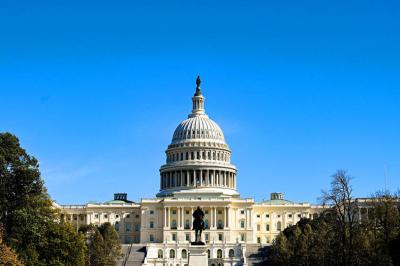A majority of people believe that legislators, regardless of their party affiliation, place their parties, families, factions or specific interest groups far above the needs of the public, a public opinion poll showed yesterday.
The survey, conducted by Taiwan Indicator Survey Research (TISR), found that only 16.7 percent of respondents said they were satisfied with the performance of lawmakers, while 61.5 percent said they were unsatisfied and 33.3 percent did not answer.
More than half, or 57.2 percent, of those polled said the Chinese Nationalist Party’s (KMT) legislative majority was not helpful to effective governance by President Ma Ying-jeou’s (馬英九) administration, a TISR press release said.
Asked for whose benefit KMT lawmakers worked, 26.4 percent of respondents said they worked primarily for their party, followed by 19.7 percent who cited businesses and specific groups, while families and factions was chosen by 18.7 percent.
Only 7.5 percent of respondents said that KMT lawmakers strived for the benefit of the public, slightly above the 7.1 percent who said lawmakers work for voters in their constituencies.
Respondents’ impressions of the Democratic Progresive Party (DPP) were similar, with 26.3 percent saying that the party mattered most to DPP lawmakers, while 17.3 percent said DPP lawmakers sought advantages for their families and factions.
However, in contrast with the KMT, 16 percent of respondents said that DPP legislators cared most about the welfare of the public, while 8 percent of those polled said DPP lawmakers sought benefits for businesses and specific interests groups.
According to the poll, 55.6 percent of respondents have forgotten who they voted for in the legislative elections in January last year, with only 23.6 percent remembering who they voted for.
The survey also showed that President Ma Ying-jeou’s (馬英九) credibility rating of 21.4 percent was the lowest since he was first inaugurated in May 2008, while his approval rating stood at a low 17.3 percent.
Meanwhile, the disapproval rating for Premier Jiang Yi-huah (江宜樺), at 47.3 percent, was the highest since he took the post in February, the poll found.
The survey, conducted on Monday and Tuesday, collected 1,005 valid samples and had a margin of error of 3.1 percentage points.

Taiwan must first strengthen its own national defense to deter a potential invasion by China as cross-strait tensions continue to rise, multiple European lawmakers said on Friday. In a media interview in Taipei marking the conclusion of an eight-member European parliamentary delegation’s six-day visit to Taiwan, the lawmakers urged Taipei to remain vigilant and increase defense spending. “All those who claim they want to protect you actually want to conquer you,” Ukrainian lawmaker Serhii Soboliev said when asked what lessons Taiwan could draw from Russia’s invasion of Ukraine. Soboliev described the Kremlin as a “new fascist Nazi regime” that justified

The US House of Representatives yesterday passed the PROTECT Taiwan Act, which stipulates that Washington would exclude China from participating in major global financial organizations if its actions directly threaten Taiwan’s security. The bill, proposed by Republican US Representative Frank Lucas, passed with 395 votes in favor and two against. It stipulates that if China’s actions pose any threat to Taiwan’s security, economic or social systems, the US would, “to the maximum extent practicable,” exclude China from international financial institutions, including the G20, the Bank for International Settlements and the Financial Stability Board. The bill makes it clear that China

‘T-DOME’: IBCS would increase Taiwan’s defense capabilities, enabling air defense units to use data from any sensor system and cut reaction time, a defense official said A defense official yesterday said that a purported new arms sale the US is assembling for Taiwan likely includes Integrated Battle Command Systems (IBCS). The anonymous official’s comments came hours after the Financial Times (FT) reported that Washington is preparing a US$20 billion arms sale encompassing “Patriot missiles and other weapons,” citing eight sources. The Taiwanese official said the IBCS is an advanced command and control system that would play a key role in President William Lai’s (賴清德) flagship defense program, the “T-Dome,” an integrated air defense network to counter ballistic missiles and other threats. The IBCS would increase Taiwan’s

NOMINAL NEWLYWEDS: A man’s family and his wife — his long-term caregiver — are engaged in a legal dogfight over the propriety and validity of the recent union A centenarian’s marriage to his caregiver unbeknownst to his children has prompted legal action, as the caregiver accuses the man’s children of violating her personal liberty and damaging her reputation, while the children have sought a legal option to have the marriage annulled. According to sources, the 102-year-old man surnamed Wang (王) lives in Taipei’s Zhongshan District (中山) and previously worked as a land registration agent. Wang reportedly owns multiple properties and parcels of land worth several hundred million New Taiwan dollars and has ten children. His caregiver, a 69-year-old surnamed Lai (賴), has been caring for him since about 1999,